Often used interchangeably, the two hot Big Data job roles – data analyst and data scientist – differ significantly from each other.
A data scientist is one who can predict future based on trends, while a data analyst curates day-to-day business insights from the data.
Abraham Cabangbang, the Staff Data Scientist at LinkedIn, clear the difference from his own work experience,
” In my previous company, I performed both roles. As an analyst, my tasks were very directed and defined what needed for real business needs.
The role of a scientist was more amorphous. I started by building an internal dashboard by surfacing information that was tracked down but was not being used – either because we lacked the infrastructure for it, or the data was not processed. “
Many such confusions exist around Big data specializations. Cutting through the clutter, here we list three Big data career typologies under which data science professionals frame their careers.
3 Big Data Career Typologies
1. Big Data Engineer – The Architects of Data Solutions
Who are they? They are the masters of many programming languages. Big Data engineers develop, test, manage, and maintain data workflows, pipelines and ETL processes.
They may assist data scientists in ensuring that their engineering can handle the machine learning (ML) models of data scientists, and if the ML models need to be scaled and corrected. They can also help data analysts in ensuring data assimilation is taking into account the desired metrics and sources.
Technologies you need to know: Relational Database Design and Programming; JAVA; Python; Pig; Spark; Hadoop; Hive; C++; MapReduce; Visualization Tools
Popular job titles: Big Data Developer; Software Engineer; Data Engineer; Technical Lead; Tableau Engineer; Data Architect
How to get there? For a junior role, you should have hands-on knowledge of major programming languages, especially JAVA and Python. For senior positions, however, you will have to level up to master the skills.
You can take formal training or gain a handle on the skills through self-learning. Take the help of data science communities, such as KDnuggets, to share your knowledge and gain access to the latest libraries.
Further, you can opt for data science certifications applicable across platforms to show your caliber for the job role. Associate Big Data Engineer (ABDETM) and Senior Big Data Engineer (SBDETM) are two vendor-neutral certifications specializing in Big Data engineering offered by the Data Science Council of America (DASCA).
It is one of the best data science certification bodies and employers around the globe accept its credentials. Other such vendor-neutral certifying agencies include the KPI Institute and INFORMS. However, they do not offer specialized Bigdata engineering certifications and Vacancies for big data engineers here
2. Big Data Analyst – The Bridge Between Tech and Business
Who are they? Among data science professionals, this is among the most in-demand job role. They craft and answer questions for organizations to drive new insights, revenue, and save costs.
Typically, they navigate between the business and technical sides of the company, making presentations to executives and getting at the root cause of consumer behavior. Big Data analysts generally have analytics skills with basic knowledge of statistics and algorithms.
Skills you will need: SQL/Database Programming; Financial Analysis; What-if Analysis; Predictive Analytics Models; Business Writing; Presentation Skills; Communication Skills; Excel Skills (Advanced)
Popular job titles: Business Intelligence Analyst; Product Analyst; Product Manager; Data Analyst; Project Associate; Modelling Analyst; CxO
How to get there? You can possess degrees from anywhere in the full range of Economics and Computer Science to Engineering and Music. Evaluation and interpretation are the core of data analytics, combined with a bit of recoding. If you can not only gather interesting insights from information but also articulate it to drive revenues, you are almost there.
An industry-led data science certification can lend weight to your candidature and help you get an edge in the interviews. DASCA offers Big Data Analytics certification for the Associate and Senior level. The KPI Institute provides Data Visualization Professional designation that can leverage for analytics job positions.
3. Data Scientist – The Doyens of Math and Statistics
Who are they? They have a firm grip on mathematics and statistics. They are a technical and analytical step above other Big data career roles. Typically, they design complicated modeling, advanced algorithms, and work with numbers. The Economic Times reports,
“In high demand are data scientists and domain experts who can lend their knowledge of machine learning applicability in businesses. They are few in numbers and there is a need for more.”
Skills you will need: Statistics; Mathematics; Machine Learning; Artificial Intelligence (AI); Natural Language Processing; Signals Processing; Visualization Tools
Popular job titles: Data Consultant; Principal Data Scientist; Senior Data Scientist; Research Scientist; Machine Learning Expert
How to get there? A Master Science in Computer Science or Mathematics should as demanded data scientist job positions. Besides that, you should have a strong knowledge of both data engineering and analyst job roles, not necessarily working knowledge.
That said, experience and domain expertise can overshadow other credentials. Adding an industry-led data science certification can improve your prospects of landing a data scientist job at large organizations. The designation of Principal Data Scientist offered by DASCA wherein learning resources provided to the applicant.
No matter the Big Data career role you set your heart on, you will need to stay updated and keep skilling up for the new era. Certification can be your hallmark for continuing education and competence.
Also Read: Artificial Intelligence Examples










